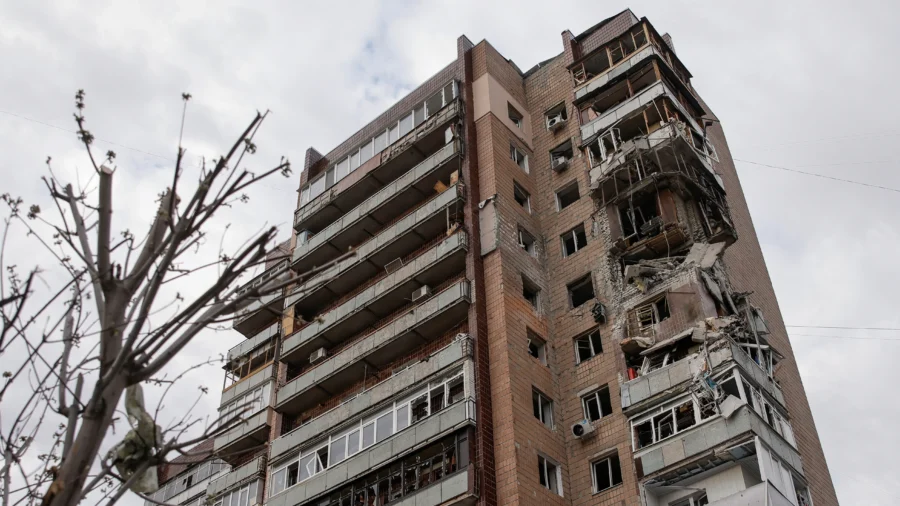KHARKIV, Ukraine—A Russian drone attack struck residential buildings in the Ukrainian city of Kharkiv and an energy facility in the surrounding region on Thursday, killing four people and severing power for 350,000 residents, officials said.
Ukraine’s second-largest city, which lies some 30 km (20 miles) from the Russian border, has been bombed heavily during the 25-month war and been one of the worst afflicted as Russia has renewed its missile and drone attacks on the energy system.
Governor Oleh Synehubov said three rescue workers had been killed in a repeat strike after they reached a residential block hit in one attack. Writing on the Telegram messaging app, he said 12 people were injured, with three in serious condition.
One of the killed rescuers was a 52-year-old firefighter whose son, also a firefighter, had been putting out a fire several buildings away, Interior Minister Ihor Klymenko said.
Realizing his father had been killed, the son, Volodymyr, knelt on the ground and wept as two emergency workers consoled him, video shared by Mr. Klymenko showed.
Russia used at least 15 drones in the Kharkiv attacks, Mr. Synehubov said. The military shot down 11 Shahed drones out of 20 launched at the country overnight, the General Staff said.
Broadcaster Suspilne reported that one of the strikes caused serious damage to apartments on three floors of a 14-storey building. It said emergency crews had been unable to work for at least an hour for fear of further strikes.
Residential buildings, stores, a medical facility, and cars were damaged in the attack, the Kharkiv prosecutor’s office said on Telegram.
Drones also hit the Zmiivska thermal power plant in the region, Mr. Synehubov said, keeping up pressure on an energy system that has come under repeated attack from air strikes in recent weeks.
“In Kharkiv and areas of the region, around 350,000 consumers have been disconnected,” the Ukrenergo grid operator said in a statement.
“Shahed attacks on energy facilities take place almost every day,” Volodymyr Kudrytskyi, head of national grid operator Ukrenergo, told a news conference. “The intensity of the attacks has increased.”
Russian forces also hit a solar power plant in Dnipropetrovsk region, causing a fire which has since been put out, the Energy Ministry said. Some limits on energy consumption were put in place in the region in the morning, the officials said.
The latter strike likely marked the first targeted attack on a solar power plant by Russian forces, Mr. Kudrytskyi said.
Russia targeted Ukraine’s critical energy infrastructure with more than 150 missiles and over 240 Shahed drones between March 22–29 of this year, according to the statement from Ukrainian parliament’s committee on energy, housing and utilities services.
These attacks severely damaged or destroyed at least eight power plants and several dozen substations, immediately cutting off over 2 million citizens from electricity, heat and water supply, the statement said. The full restoration of the facilities will likely take months.
Reuters was unable to independently verify the accounts. Russia denies deliberately targeting civilians in the war in which it is focusing on capturing eastern and southern parts of Ukraine.
An education facility, cultural centre and private residence in the Dnipropetrovsk region were also hit in the overnight attacks, the region’s governor said, adding that no casualties were reported.
Kharkiv has been a frequent target of Russian drone and missile attacks.
Russian forces last week used an aerial bomb on the city, killing one person after a missile attack on an industrial area last month killed five people.


